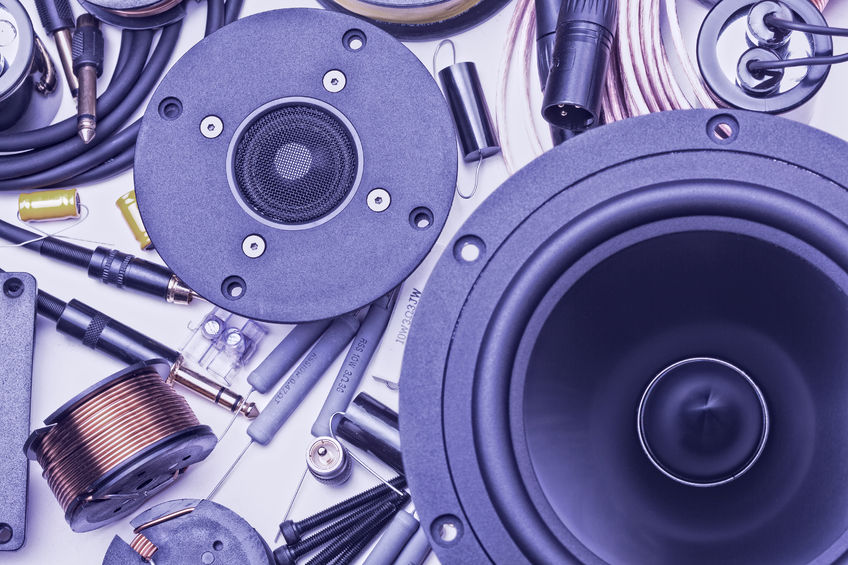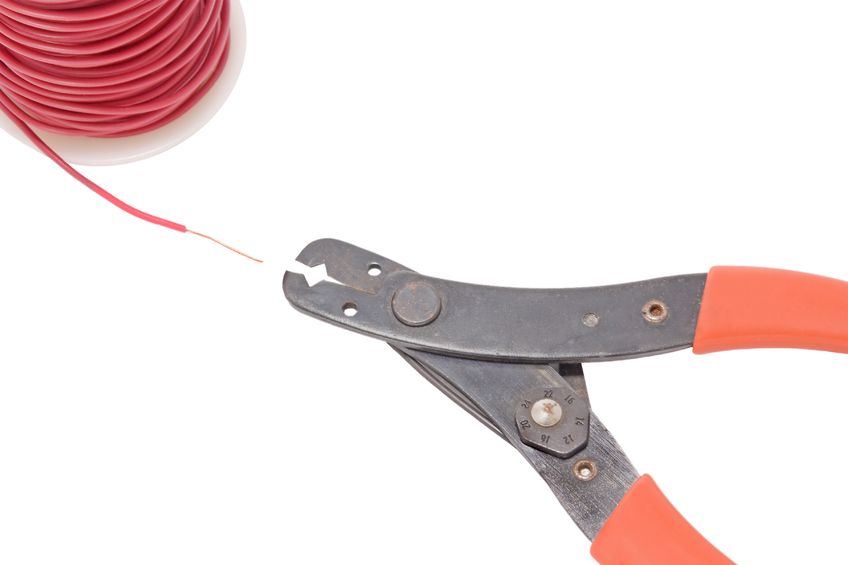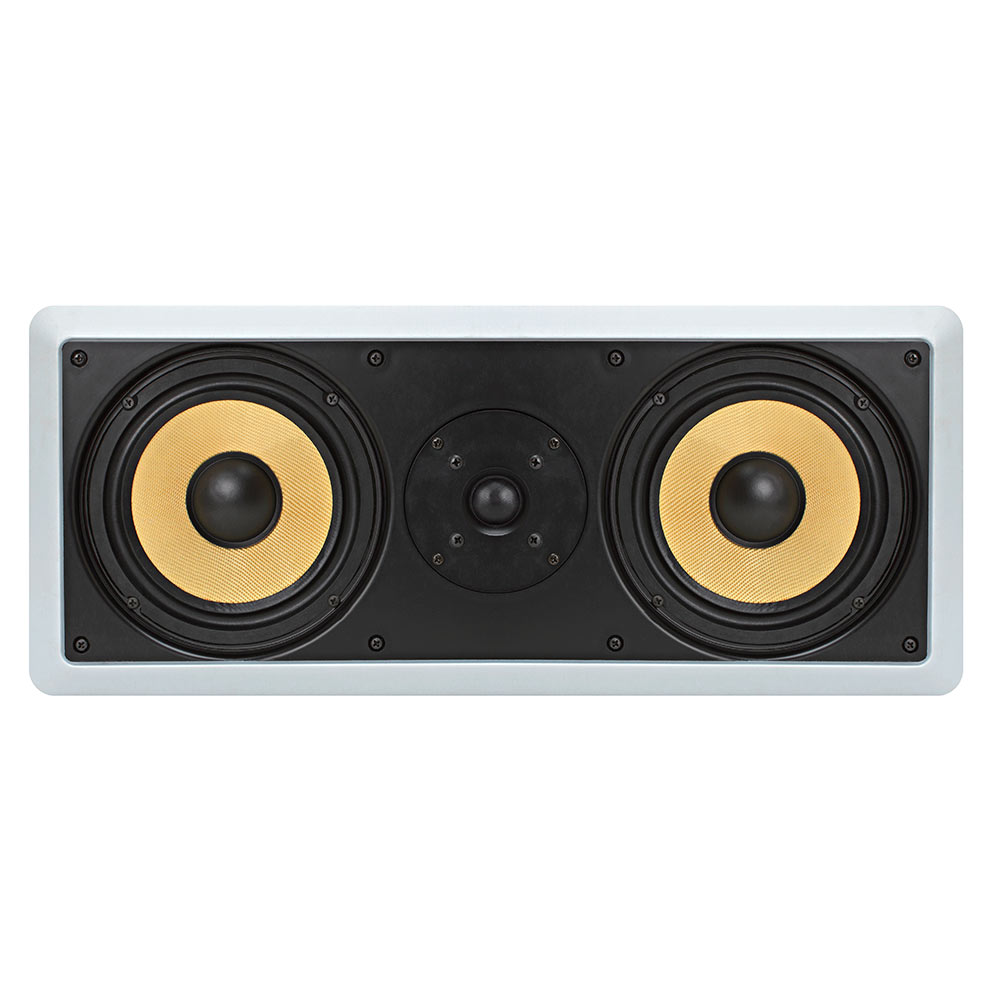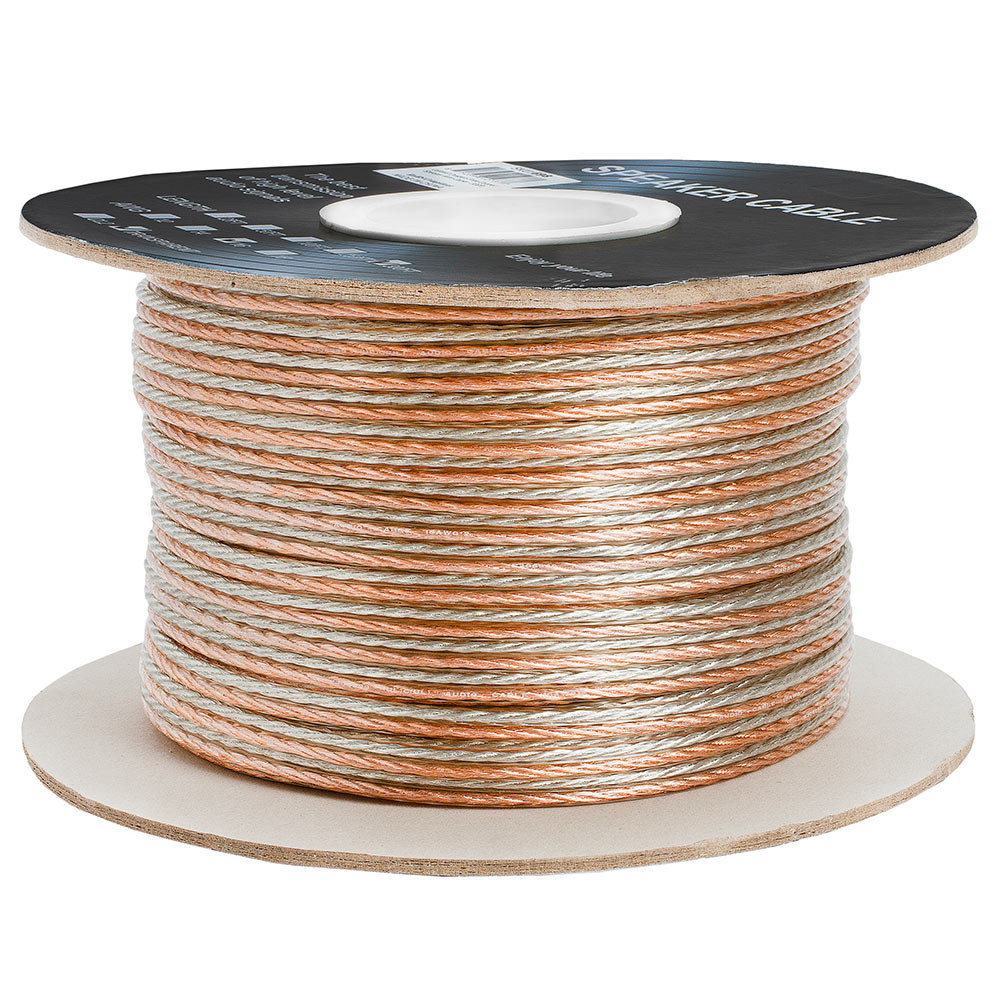Speaker Wires: Does The Gauge Size Really Matter?
So you bought a killer set of speakers, and maybe even center-channel and surround-sound speakers to set up your perfect A/V system or home theater. Or perhaps you picked up a set of desktop speakers to connect to your computer.And then you realized: Oh, right – most speakers don’t come with cables.
You looked at the store or online for speaker wire, and had a second realization: You have no idea whether you need 18AWG, 16AWG, 14AWG or 12AWG speaker cables. In fact, you’re not quite sure what those numbers mean, or how you should decide between them.
Never fear. As always, the Cmple Learning Center is here to help.

How Speaker Wires Work
Yes, we’re aware that you know speaker wires carry audio from a source (like a receiver or TV) to speakers. But to understand wire gauges, it’s important to think about how they work.When an analog audio signal is sent through speaker wires, it is in the form of electricity. This low-voltage electrical signal takes the same waveform as the sound waves created by the voice or music being transmitted. It is recreated as sound (through the use of an electromagnet) once it reaches the speakers.
Since electricity is traveling through the speaker wires, the ability of the wires to conduct electricity becomes crucial. There are two things to consider here: the length of the wire, and how difficult it is for the electric signal to get from one end to the other, measured by the wire’s “resistance.” (To be honest, since audio signals are AC current it’s actually “impedance” rather than resistance, but since most people use the two terms interchangeably we’ll do the same.) Length and resistance are related to each other, so let’s look at resistance first.
For a moment, think of electricity and wires as operating in the same way as water and water hoses. If you are trying to water your plants using a hose that’s as only thick as a drinking straw you’ll end up spending a lot of time in your garden, because the water will flow so slowly. The tiny width of the hose presents a very high amount of resistance to the water trying to make it to your plants. On the other hand, a very wide hose will present little resistance to the water flowing from your faucet, and the water will flow freely.
OK, let’s get back to speaker wires because the same general principle applies. It’s much easier for electrical signals carrying sound to travel through speaker wires if they’re wide, and more difficult if they’re narrow. In other words, narrow wires create greater resistance for the signals to overcome. In the case of electrical signals, the problem is not that there will be a “slow flow” of audio to your speakers, like there was with the narrow garden hose. Instead, much of the electrical energy will be absorbed by the cables and the quality of the sound you hear will be diminished, particularly in the higher frequencies.
So if thicker is better than thinner, the natural conclusion would be that you should always use the thickest possible speaker wire – but that’s not always true. There are other practical considerations, which we’ll get to shortly.
We promised to discuss the length of speaker wire and how it’s related to resistance. To do that, we’ll go back to our water and water hose. You certainly know from practical experience that the shorter your garden hose is, the stronger the water flow will be; water pressure naturally declines over long distances. It’s basically the same with electricity and wires. The longer the wire, the more resistance there is to the end-to-end flow of electricity.
You should be able to guess the rest. When you’re using a long run of speaker wire – which will have greater resistance – you need to compensate with thicker wire, in order to lower the overall resistance presented to the electrical signals.
With us so far? Great. Let’s move on.
The AWG Scale
Those AWG numbers you see used to describe speaker wires stand for American Wire Gauge, the standardized system used to measure the diameter of wires since the mid-1800s, and they’re used for all types of wires that carry electrical signals. The numbers are often referred to as just “gauge,” so 14AWG wire is the same as 14-gauge wire.The scale for wire thickness ascends in reverse order by two. In the case of speaker wires you’ll normally see choices of 12-gauge, 14-gauge, 16-gauge and 18-gauge, with the smaller numbers thicker than the larger numbers. That means 12-gauge (12AWG) speaker wire is much thicker than 18-gauge (AWG) wire, so if you’re looking for the thickest wire you’d want 12AWG. (Yes, 10AWG would be even thicker, but then you start running into other problems with capacitance and signal quality which we’re not going to get into here.)
But as we mentioned earlier, there are other considerations to consider before you just grab a spool of thick, 12-gauge wire for your new speakers.
The first is price. You’ve probably guessed that thicker speaker wire is more expensive than thinner wire, because there’s more copper inside. (Copper is the standard conductor used for speaker wire).
The second consideration involves the impedance of your speakers, which will typically be either 4, 6, 8 or 16 ohms. We won’t bog you down with the theory, but in a nutshell, 4- or 6- ohm, low-impedance speakers call for more-expensive, thicker (12 AWG or 14 AWG) speaker wire. 8- and 16-ohm speakers will perform just fine with less-costly 16AWG or even 18AWG wire.
Finally, there’s the distance issue we’ve already discussed. For long cable runs (more than 100 feet) you’ll want to go with 14AWG wire, and 12AWG is the best choice for very long runs over 200 feet.

So, Does The Gauge Size Really Matter?
Yes, the gauge size does matter in several cases:- You’re an audiophile and want to match your speakers and wires perfectly, for the ultimate in audio delivery. In that case, you might want to dig even deeper than this discussion; there are plenty of formulas involving the impedance of your audio source and speakers, and the distance between them, which can tell you exactly what gauge to select.
- You’re running long or very long speaker cables, probably through wires and/or walls. In that case you’ll want 12AWG or 14AWG wires, depending on the length of the run.
- You have low-impedance speakers, in which case you’ll also want thicker speaker wires.
 The one thing that does matter is that you ignore the flashy sales pitches from companies selling “Super-Duper” speaker cables for Super-Duper prices. There’s nothing Super-Duper about their quality; they’ll sound exactly the same as the high-quality 12, 14, 16 or 18 gauge speaker wires that we have at Cmple for low – and realistic – prices.
The one thing that does matter is that you ignore the flashy sales pitches from companies selling “Super-Duper” speaker cables for Super-Duper prices. There’s nothing Super-Duper about their quality; they’ll sound exactly the same as the high-quality 12, 14, 16 or 18 gauge speaker wires that we have at Cmple for low – and realistic – prices.
0
Featured products






